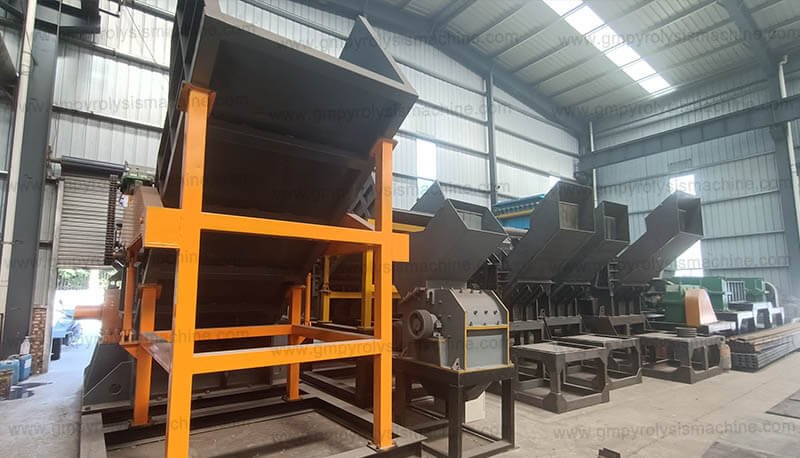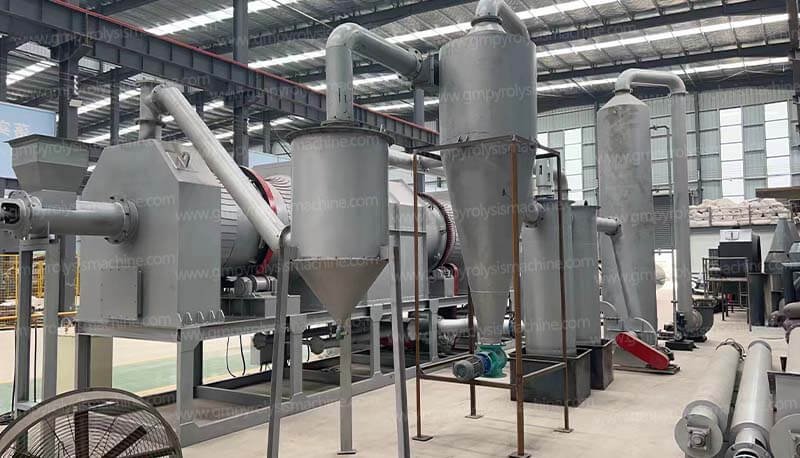In today’s competitive manufacturing landscape, investing in a charcoal machine production line is a game-changer for businesses aiming to produce high-quality charcoal briquettes, biomass fuel, or activated carbon efficiently.
What is a Charcoal Machine Production Line?
A charcoal machine production line is an integrated system designed to convert raw biomass materials (e.g., wood chips, coconut shells, rice husks) into charcoal through carbonization, briquetting, and drying processes. Key components include:
1. Crushing Machine: Reduces raw materials to uniform sizes.
2. Drying Equipment: Lowers moisture content for efficient carbonization.
3. Charcoal Carbonization Furnace: Heats biomass in an oxygen-limited environment to produce charcoal.
4. Briquette Press Machine: Compresses carbonized powder into uniform briquettes.
5. Cooling and Packaging Systems: Ensures safe handling and storage.
This streamlined process minimizes waste, energy consumption, and labor costs while ensuring consistent product quality.
Why Invest in a Modern Charcoal Production Line?
1. High Efficiency & Scalability
A fully automated charcoal briquette making machine can process 1–5 tons of raw material per hour, depending on capacity. Advanced PLC control systems enable precise temperature and pressure adjustments, reducing human error and downtime.
2. Eco-Friendly Compliance
Modern carbonization furnaces recycle combustible gases generated during carbonization, using them as fuel to sustain the process. This closed-loop design reduces emissions and aligns with global sustainability standards like ISO 14001.
3. Versatility in Raw Materials
From agricultural waste (sawdust, palm kernels) to municipal sludge, a biomass charcoal production line can handle diverse feedstocks, offering flexibility in product output (e.g., BBQ charcoal, industrial fuel).
4. ROI-Driven Cost Savings
Automated systems cut labor costs by 60%, while energy-efficient designs lower power consumption. For example, a continuous carbonization machine operates 24/7 with minimal supervision, accelerating payback periods.
Key Applications of Charcoal Machine Production Lines
BBQ Charcoal Manufacturing: Produce odorless, long-burning charcoal for grilling.
Industrial Fuel: Create high-calorific briquettes for steel mills or power plants.
Activated Carbon: Supply water treatment or pharmaceutical industries.
Agricultural Recycling: Convert crop waste into profitable charcoal products.
How to Choose the Right Charcoal Production Line Supplier
Selecting a reliable supplier ensures long-term ROI. Consider these factors:
1. Customization Options: Can the charcoal briquetting machine be tailored to your raw material type and output goals?
2. After-Sales Support: Opt for suppliers offering installation, training, and spare parts services.
4. Certifications: Ensure equipment meets CE, ISO, or local environmental standards.
4 Maintenance Tips for Longevity of Your Charcoal Machine
1. Regularly clean the carbonization furnace to prevent residue buildup.
2. Lubricate moving parts in the briquette press machine to avoid wear.
3. Inspect electrical components for corrosion or damage.
4. Replace worn-out molds in the briquetting system to maintain product shape.
FAQs About Charcoal Machine Production Lines
Q: What’s the minimum space required for a production line?
A: A compact setup needs 200–300 m², including raw material storage and packaging zones.
Q: Can the line process wet biomass?
A: Yes, but a drying machine is essential to reduce moisture to 8–12% before carbonization.
Q: How long does carbonization take?
A: Typically 15–30 minutes, depending on material type and furnace design.
Elevate Your Charcoal Business with a Turnkey Solution
A well-designed charcoal machine production line is a strategic investment for businesses targeting efficiency, sustainability, and scalability. By partnering with an experienced supplier and leveraging advanced technologies, you can transform low-value biomass into high-demand charcoal products while staying ahead of competitors.
Ready to explore options? Contact us today for a free consultation and quote tailored to your production needs!






